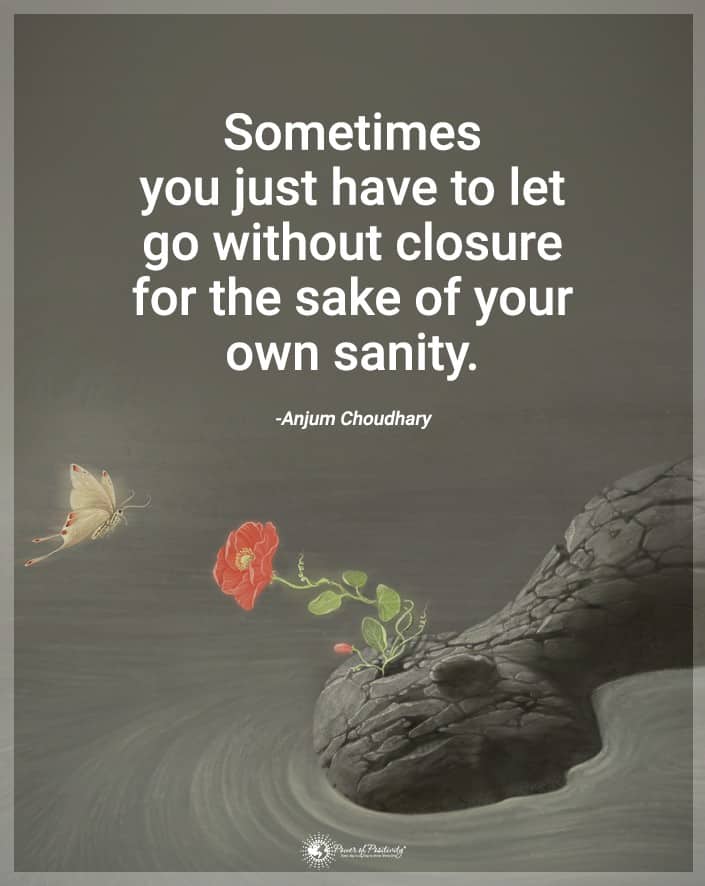Do you consider yourself a person of emotional maturity? Or do you feel that you have some room for growth? Learning to navigate the emotional spectrum is undoubtedly something that you should strive to do, but it’s often a daunting task. How many times do you let your emotions get the best of you?
Assume you’re at the grocery store, and the parking lot is a zoo. You finally see a car that is pulling out. You put your turn signal on to indicate that you’re going to take that space as soon as they leave. Before you know it, some lady whips her car into the spot at the last minute.
An emotionally mature person would move onto another spot and think that she must have really needed to get into the store quickly. However, were you the person honking the horn and making gestures to let her know how angry she made you? It’s these little situations like this that test your maturity daily.
Fifteen Behaviors That Reveal Emotional Maturity
The goal is to strive to do better in situations when life hands you lemons. You cannot control what happens to you, but you can control how you react to it. Once you gain this level of maturity, you will look at the world differently.According to the Journal of Marital and Family Therapy, being emotionally mature is essential to solid relationships.
Here are 15 signs that you’re conquering emotional maturity and you’re getting a handle on your reactions.
1. You Don’t Complain When Life Doesn’t Go Your Way
No one likes to hear someone complain all the time. If you dwell on the negative aspects of your life, it can cripple your emotions.
When you learn to look at the glass half full rather than empty, it changes your whole perception. When the things that often cause you to complain suddenly don’t send you into a tailspin, you are entering into emotional maturity.
2. You Never Holds Grudges
When someone does you wrong, it’s only natural to want to avoid this person. Holding grudges is effortless when you feel you’re justified. However, maturing means that you learn to forgive and get past these issues and not let them fester.
3. You’re Eager to Admit When You’re Wrong
A significant sign of maturing is that you can admit when you’re wrong. Have you ever known someone that will not admit how wrong they are, no matter how guilty? Realizing something that you said or did that was inappropriate or hurtful is a giant step in becoming a bigger and better person.
4. You Don’t Judge by First Impressions
Have you ever heard the saying that you shouldn’t judge a book by the cover? Some of the most wonderful people have an outward appearance that doesn’t match the inside. Someone who is emotionally mature doesn’t always look at the clothes and hairstyles but looks beyond the exterior to see the beauty within.
5. You Never Expect Others to Be Perfect
If you expect others to be perfect, then you will be greatly disappointed in life. Entering emotional maturity allows you to realize that humans are fallible and going to make mistakes. Additionally, it would help if you gave yourself the same consideration when you stumble and fall.
6. You’re Aware of Your Flaws and Shortcomings
Since you know you’re not perfect, you will also begin to embrace your shortcomings when you mature. Rather than denying issues, you learn to acknowledge and work on things like being late all the time, spending too much money, and having a short fuse with your temper.
7. You Develop a Realistic Perspective on Love and Relationships
Relationships start as physical feelings of attraction, but they soon develop into something deeper as the connection grows. Your perspective on love and your partner morphs into something different the longer you are together. Once emotional maturity begins to take hold, you will have a more realistic view of relationships and love.
8. You Allow the Inner Child to Have Moments of Playfulness
Everyone has an inner child that loves to come out occasionally. It’s fun to forget about the job, bills, family, and responsibilities and have fun. Someone growing into their maturity isn’t afraid to let their hair down and have joy.
Why does life have to be so serious anyway, as there are almost always times where you need to be a kid for a while.
9. You Show Empathy to Others
When someone is down, you should always show empathy. The key is that you never know when it will be your turn to go through some turbulent times, and you will need the support of your friends and family. Empathy and sympathy are words that are often used interchangeably, but they’re quite different.
Anyone can sympathize with a person in pain, but empathy takes it one step further by feeling the individual’s emotions. When you learn to show compassion, it’s a sign that your emotions are maturing.
10. You Understand That Happiness is a Lifelong Process
Wouldn’t it be great if life were all sunshine and roses? However, it’s not realistic to think that life won’t be without its fair share of complications. When you reach a mature level, you realize that it’s the difficult times and storms in your life that teach you more than sunshine and rainbows.
11. You’re Flexible and Can Adapt Accordingly
Are you flexible and can adapt to many situations? Have you ever seen someone that falls to pieces when the plan doesn’t go accordingly? Becoming mature means that you realize that nothing is ever going to go according to your plans, and you learn to roll with the punches.
If you expect everything to go the way you intend, you have an unrealistic perception of life. Learning to embrace the challenges and see them as opportunities for growth is signs of maturing emotionally.
12. You’re Focused on Personal Growth
Personal growth is a constant process. Rather than focusing on what’s wrong with everyone else, an emotionally mature person will focus on the areas where they need growth. There are no perfect people in this life, and everyone has things that they need to alter to grow and change.
When a person gains maturity, they learn that they have many flaws and things they should work on. When you start enhancing your personal growth, others around you can’t help but notice.
13. Accepts Alternate Views
Do you remember when you were younger and felt your views and opinions were the only ones that mattered? Thankfully, as you grow and mature, you will start to embrace the differences of others. There is much diversity in the world, and when you begin to learn and embrace the differences, it can make your journey here on earth more enjoyable.
14. Appreciate the Little Things in Life
A country songwriter did a song that talked about the little things. She was writing about relationships and the connection. She specified things like rubbing her back, making her laugh, and holding her while she dreamed that was important to her.
When you reach emotional maturity, you realize that life isn’t about big houses or fancy cars. Some of the most precious gifts you’re given are a note that tells you how special you are, a card that tells how much you’re loved, or your partner cooking your favorite meal when you’ve had a hard day.
Your perceptions certainly change when you age and mature, and you learn how much people and the little things they do mean to you.
15. Lives a Value-Driven Life
Folks will know you by your values and principles. If you’re always honest, then they will know they can trust you. If you’re loyal to friends and family, then they will know who to call when they need guidance. Your values make you a better person, and others will appreciate those things about you.
Understandably, the values you had when you’re eighteen are not the same as when you’re forty. With physical maturity also comes emotional development.
Final Thoughts on the Fifteen Signs of Emotional Maturity
Emotional maturity is complex and subjective. This growth encompasses your self-image, compassion for others, and respect for yourself and humanity. Most folks see their youth as a carefree period, In fact, it is at this time of their life when it’s okay to be a little zany.
How many times have you heard your parents or other authoritative figure say things like, “oh well, they’ll grow up, they’re still young and have a lot of learning to do?” Sadly, this type of maturity is not something that you are born with, but it’s a skill that you develop as time goes on.
How would you rate your emotional wellbeing, and do you think you’re improving? Try journaling a list of ways that you can grow positively. Implement some goals for personal growth so that you can make progress in your journey. Chances are if you start working on your inner self and your emotions, you will be a different person in no time.
















 Community
Community

